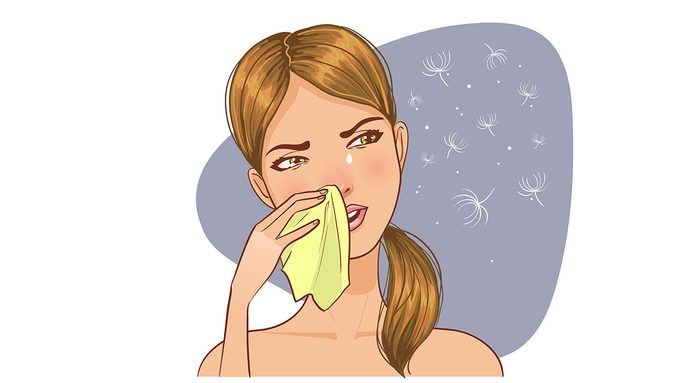Can You Develop Allergies As An Adult?
Yes you can. Find how why you can develop allergies as an adult and how you can deal with the annoying new-to-you symptoms.

Here’s the hard truth: Allergies can develop at any age. Seasonal allergies usually begin in childhood – though sometimes they start in adolescence or young adulthood – but you can develop allergies as an adult, too.
Seasonal allergies vs. environmental allergies
Common seasonal allergens – such as trees, grass and pollen – exist throughout the summer and can be found in high concentrations on certain days. Your local weather report should be able to give you a daily pollen count. If you think you might be allergic to some of these, talk to your family doctor about seeing an allergy specialist. An allergy specialist will review your medical history and give you a skin test to determine any potential allergies.
Allergies can also be based on your environment. If you move, your allergies may change and you could develop sensitivities to other allergens in your environment.
Finding relief for your “new” allergies
There are many types of treatment available to relieve allergy symptoms.
Environmental changes, such as keeping your windows closed in summer and using air conditioning, can provide some relief – just be sure to change your air filters as required.
At home, frequent cleaning and vacuuming can help prevent a buildup of dust mites and pet dander, both of which are common allergens. If you have area rugs in your home, try putting them away in summer – it can often be easier to clean the dust off hardwood floors than carpets. Wear a dust mask over your nose and mouth if you’re doing work outdoors in summer, such as mowing your lawn or gardening.
At work, dusting your immediate work area can also provide relief. Having plants can help clean the air, but be sure to wipe the leaves with a moist cloth to prevent dust from settling.
You can consider allergy medications such as antihistamines, intranasal steroids and prescription eye drops. It’s best to talk to your family physician before starting regular medications.
If your allergies are quite severe and you aren’t responding well to medications, you could try immunotherapy, which is a treatment that uses regular vaccinations to reduce allergen sensitivities. However, there is a rare risk of an allergic reaction. Talk to your family physician about what is best for you.




